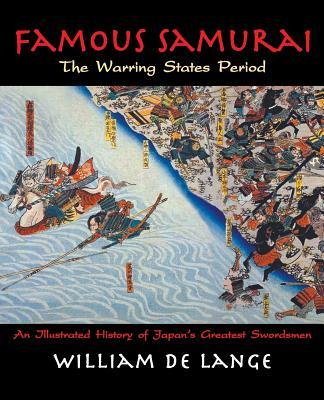The Warring States period (1467-1568) was the most destructive in Japan's long history of civil strife. It began when the dearly won supremacy of the Ashikaga clan was squandered by a weak and indecisive ruler, allowing the jealous rivalry between local warlords to spiral irrevocably out of control. It was a time when thousands upon thousands of warriors either perished on the battlefield or persevered simply on the strength of their martial skill. At the end of the day, only those with superior skill remained standing to survey the carnage and count the severed heads of their fallen foes. In spite of all the mayhem and bloodshed, they were also men with an inextinguishable moral core, who adhered with almost religious devotion to the bushid dictates of duty, fidelity, decorum, indeed, even of benevolence.
Two such men were Iizasa Chōisai Ienao and Kami Izumi Nobutsuna. Both not only witnessed but actively participated in the dramatic events of the period at hand. Thus, Ienao served on the Shogunal guard when, following the outbreak of the Ōnin War in 1467, the capital Kyoto was reduced to ashes in a decade of trench warfare. And thus Nobutsuna had to witness how, in the terrible wave of anarchy that followed in its wake, all that his ancestors had toiled for was lost. Their story, told against the greater historical backdrop of ruthless political intrigue and vast military campaigns, is a story of the tragedy of civil war experienced at the personal level-it is a story of sacrifice, of blind devotion, of seemingly insurmountable setbacks. Yet it is at the same time a testimony to the kind of perseverance that can have no equal in times of peace.
